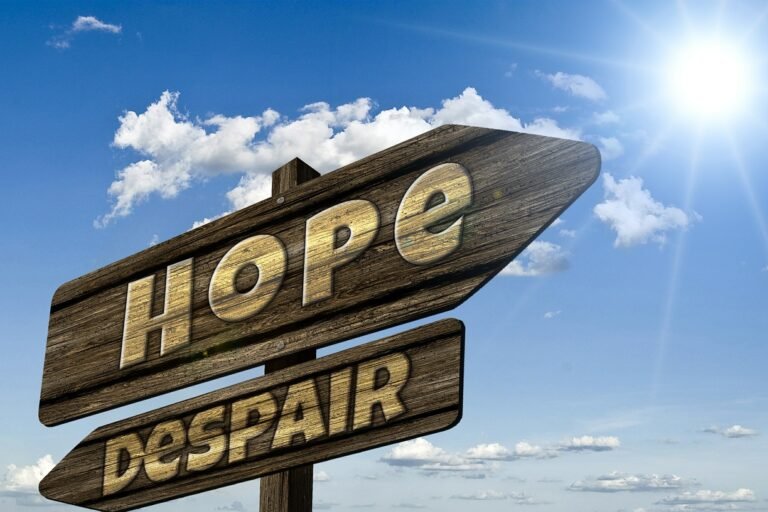Table of Contents
ToggleThe 12 Steps For Atheists
Although the 12 Steps are based on spiritual or religious principles, non-religious people have found them to be helpful. The language used emphasizes the presence of “God” as each participant understands the concept. This can be a higher power, a deity, or even the support group itself, allowing for different interpretations and religious beliefs to garner the benefits of such a program.
However, there are still those that are apprehensive of 12 Step Programs due to the “God thing.” This is problematic, as it can stand as a barrier between them and recovery. Taking the first step to attend a meeting can be daunting enough, but some people may find the idea of things such as the Serenity Prayer off-putting. This can sometimes be a set-up for failure before they’ve even begun. Even those that may classify themselves as spiritual, rather than religious, may find the 12 Steps too closely associated with Judeo-Christianity. This may pose a problem for those that do not align themselves with monotheistic faiths.
The 12 Steps Include :
While traditional 12-step programs are often associated with a spiritual or religious framework, some people may prefer a secular approach. Here’s an adaptation of the 12 steps for atheists or those who prefer a non-religious perspective :
-
Acknowledging Limitations: Recognize the aspects of life beyond your control, understanding that you cannot influence everything.
-
Seeking Support in Community: Find strength and encouragement from friends, family, or a secular community that shares common values and goals.
-
Choosing Personal Growth: Make a conscious decision to embrace positive changes and commit to personal development.
-
Reflecting on Personal Values: Conduct an honest self-assessment, identifying strengths and areas for improvement without resorting to moral judgment.
-
Taking Responsibility for Mistakes: Acknowledge and take ownership of your errors without attributing them to external forces.
-
Making Amends When Possible: Recognize the impact of your actions on others and, where feasible, work towards restitution without causing additional harm.
-
Committing to Continuous Improvement: Embrace opportunities for ongoing self-improvement, committing to a journey of lifelong learning and growth.
-
Identifying and Addressing Harm Caused: Reflect on how your actions may have negatively affected others and take proactive steps to address and rectify those harms.
-
Making Direct Amends: When appropriate, make amends directly to those you have harmed, considering their feelings and needs.
-
Regular Self-Reflection: Consistently assess your thoughts and actions, making necessary adjustments to stay on a positive and healthy path.
-
Fostering Mindfulness: Cultivate an awareness of the present moment, promoting mindfulness in your thoughts, feelings, and behaviors.
-
Committing to Support Others: Share your experiences and insights to help those who may be struggling, providing encouragement and assistance.

Alternatives to AA :
Fortunately, there are options for people who prefer a secular approach. AAagnostica is a website dedicated to upholding the core tenets of Alcoholics Anonymous but from a non-religious point of view. Many of the members belong to AA organizations, but the website is a space for secular AA members to share their experiences, find comfort, and engage with other like-minded individuals.
As stated on their website: “AA Agnostica does not endorse or oppose any form of religion or atheism. Our only wish is to ensure suffering alcoholics that they can find sobriety in AA without having to accept anyone else’s beliefs or having to deny their own.”
Secular Organizations for Sobriety (SOS), as per their website is “a nonprofit network of autonomous, non-professional local groups, dedicated solely to helping individuals achieve and maintain sobriety/abstinence from alcohol and drug addiction, food addiction and more.”
They share online resources, literature and information, as well as offering online and in-person meetings. Their documentary short-film ‘No God at The Bottom of a Glass’ tells the story of the organization and was an official selection of the International Freethought Film Festival, and a recipient of a 2014 Telly Award.
Rewriting the 12 Steps :
Whatever your core beliefs, there are many alternatives to the 12 Steps. Some only differ from the original 12 Steps in their absence of God, others don’t include the word “alcoholic” or “powerless.” For instance, White Bison, a Native-American organisation in Colorado provides sobriety, recovery, and addiction prevention. Their take on the 12 Steps is based on the Medicine Wheel and has a different approach for men, women and youths.
Controversial celebrity Russell Brand’s book Recovery also takes a different approach to the steps. Calling a spade a spade, he urges readers to “unf*ck themselves” through his revision of the 12 Steps.
**(Warning Strong Language)**
- Different Types of Addiction
- Support Network In Recovery From Addiction
- Effective Treatment for Addictive Behaviours
- Cognitive Behavioural Therapy For Addiction
- Setting Realistic And Reachable Wellness Goals In Recovery
- How Addiction Affects Families
- Sober Curious: A Movement For Change
- The Five Rules Of Recovery
- What Is Acceptance and Commitment Therapy?
- Mental Health 102: Understanding Depression
- Unpacking Wine Mom Culture
- The Dangers of Addiction Replacement
- Nurtured By Nature: Nature In Addiction Recovery
- The 12 Steps For Atheists
- A Deeper Look Into Dual Diagnosis
- Financial Wellness in Addiction Recovery
- How Does Stress Affect Addiction?
- Mental Health 101: Understanding Anxiety Disorders
- Talking About Marijuana Use Disorder
- Yoga Practices in Addiction Recovery